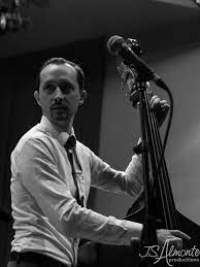Latest Sheet Music
Bob Gaudio
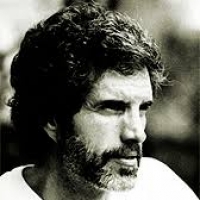
Robert John "Bob" Gaudio (born November 17, 1942) is an American singer, songwriter, musician, and record producer, and the keyboardist and backing vocalist of the Four Seasons. Gaudio wrote or co-wrote and produced the vast majority of the band's music, including hits like "Sherry" and "December, 1963 (Oh, What a Night)". Though he no longer performs with the group, Gaudio and lead singer Frankie Valli remain co-owners of the Four Seasons brand.
Luigi Boccherini

Ridolfo Luigi Boccherini (/ˌbɒkəˈriːni/, also US: /ˌboʊk-/, Italian: (About this soundlisten); 19 February 1743 – 28 May 1805) was an Italian, later Spanish, composer and cellist of the Classical era whose music retained a courtly and galante style even while he matured somewhat apart from the major European musical centers. He is best known for a minuet from his String Quintet in E, Op. 11, No. 5 (G 275), and the Cello Concerto in B flat major (G 482). The latter work was long known in the heavily altered version by German cellist and prolific arranger Friedrich Grützmacher, but has recently been restored to its original version.
Traditional

Ludwig van Beethoven

Ludwig van Beethoven (/ˈlʊdvɪɡ væn ˈbeɪt(h)oʊvən/ (About this soundlisten); German: (About this soundlisten); baptised 17 December 1770 – 26 March 1827) was a German composer and pianist. A crucial figure in the transition between the classical and romantic eras in classical music, he remains one of the most recognized and influential musicians of this period, and is considered to be one of the greatest composers of all time.
Beethoven was born in Bonn, the capital of the Electorate of Cologne, and part of the Holy Roman Empire. He displayed his musical talents at an early age and was vigorously taught by his father Johann van Beethoven, and was later taught by composer and conductor Christian Gottlob Neefe. At age 21, he moved to Vienna and studied composition with Joseph Haydn. Beethoven then gained a reputation as a virtuoso pianist, and was soon courted by Prince Lichnowsky for compositions, which resulted in Opus 1 in 1795.
Beethoven was born in Bonn, the capital of the Electorate of Cologne, and part of the Holy Roman Empire. He displayed his musical talents at an early age and was vigorously taught by his father Johann van Beethoven, and was later taught by composer and conductor Christian Gottlob Neefe. At age 21, he moved to Vienna and studied composition with Joseph Haydn. Beethoven then gained a reputation as a virtuoso pianist, and was soon courted by Prince Lichnowsky for compositions, which resulted in Opus 1 in 1795.
Bach

Johann Sebastian Bach (31 March 1685 – 28 July 1750) was a German composer and organist whose sacred and secular works for choir, orchestra, and solo instruments drew together the strands of the Baroque period and brought it to its ultimate maturity. Although he introduced no new forms, he enriched the prevailing German style with a robust contrapuntal technique, an unrivalled control of harmonic and motivic organisation in composition for diverse musical forces, and the adaptation of rhythms and textures from abroad, particularly Italy and France.
Revered for their intellectual depth and technical and artistic beauty, Bach's works include the Brandenburg concertos; the Goldberg Variations; the English Suites, French Suites, Partitas, and Well-Tempered Clavier; the Mass in B Minor; the St. Matthew Passion; the St. John Passion; The Musical Offering; The Art of Fugue; the Sonatas and Partitas for violin solo; the Cello Suites; more than 200 surviving cantatas; and a similar number of organ works, including the celebrated Toccata and Fugue in D Minor.
While Bach's fame as an organist was great during his lifetime, he was not particularly well-known as a composer. His adherence to Baroque forms and contrapuntal style was considered "old-fashioned" by his contemporaries, especially late in his career when the musical fashion tended towards Rococo and later Classical styles. A revival of interest and performances of his music began early in the 19th century, and he is now widely considered to be one of the greatest composers in the Western tradition.
Revered for their intellectual depth and technical and artistic beauty, Bach's works include the Brandenburg concertos; the Goldberg Variations; the English Suites, French Suites, Partitas, and Well-Tempered Clavier; the Mass in B Minor; the St. Matthew Passion; the St. John Passion; The Musical Offering; The Art of Fugue; the Sonatas and Partitas for violin solo; the Cello Suites; more than 200 surviving cantatas; and a similar number of organ works, including the celebrated Toccata and Fugue in D Minor.
While Bach's fame as an organist was great during his lifetime, he was not particularly well-known as a composer. His adherence to Baroque forms and contrapuntal style was considered "old-fashioned" by his contemporaries, especially late in his career when the musical fashion tended towards Rococo and later Classical styles. A revival of interest and performances of his music began early in the 19th century, and he is now widely considered to be one of the greatest composers in the Western tradition.
Guy Duijck
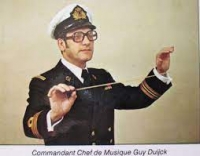
Guy Duijck Musical composerAbout Born: April 28, 1927 Died: July 26, 2008 .
Stephen Adams
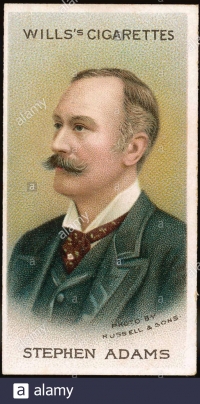
Michael Maybrick (31 January 1841 – 26 August 1913) was an English composer and singer, best known under his pseudonym Stephen Adams as the composer of "The Holy City," one of the most popular religious songs in English.
Josef Zawinul
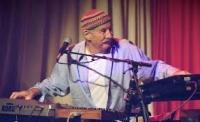
Josef Erich Zawinul was an Austrian jazz keyboardist and composer. First coming to prominence with saxophonist Cannonball Adderley, Zawinul went on to play with Miles Davis and to become one of the creators of jazz fusion, a musical genre that combined jazz with rock.
Lamont Lenox
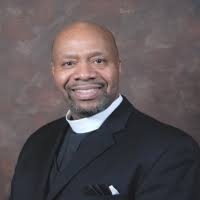
Lamont Lenox Singer God Is Still On The Throne Yes I Can · 2014 I Just Want To Thank You Lord Yes I Can · 2014
Such Love He Had For Me Yes I Can · 2014
Such Love He Had For Me Yes I Can · 2014
Bettinelli Bruno
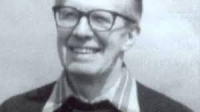
Bruno Bettinelli died in Milan in 2004 at the age of 91. As a memoriam to Bruno Bettinelli, Milan's Edizioni Musicali European (EME), in collaborations with the magazines "Cartellina" and "Chorus," established a national competition for choral composition in his name.
Larry Barton
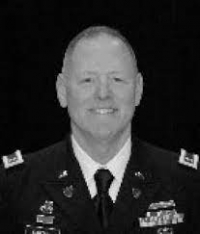
Larry Barton, a graduate of Eastern Kentucky University (1979), has over 30 published compositions for Marching Band and Jazz Ensemble with C. L. Barnhouse Company since 1992. Mr. Barton brings a wealth of teaching, learning, and conducting experience to his compositions. He has served as Band Director of the Bardstown Independent and Madison County School Districts in Kentucky, and Commander/Conductor of the 100th Division US Army Reserve Band, Ft. Knox, Kentucky, teaching and working with young people in grades 5-12 and beyond. Mr. Barton is presently an assistant principal in Madison County. His services as an arranger, composer, and adjudicator are in great
Georg Philipp Telemann
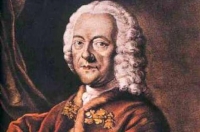
Georg Philipp Telemann was a German Baroque composer and multi-instrumentalist. Almost completely self-taught in music, he became a composer against his family's wishes.
Pablo Beltran Ruiz
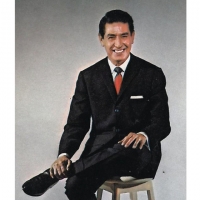
Pablo Beltrán Ruiz was a Mexican composer and band leader most famous for composing the Spanish language song "¿Quién será?", a hit made famous internationally by Dean Martin as "Sway" in 1954, and later by Bobby Rydell in 1960, with English lyrics by Norman Gimbel.
Ep Pickford
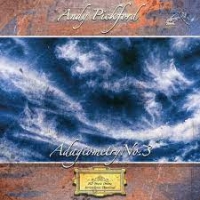
As one of the most popular of the 1990's UK 'new wave' of electronic music exponents,Ep Pickford's music is characterised by strong rhythms and sequences ...
Heitor Villa-Lobos

Heitor Villa-Lobos (March 5, 1887 – November 17, 1959) was a Brazilian composer, described as "the single most significant creative figure in 20th-century Brazilian art music". Villa-Lobos has become the best-known and most significant Latin American composer to date. He wrote numerous orchestral, chamber, instrumental and vocal works. His music was influenced by both Brazilian folk music and by stylistic elements from the European classical tradition, as exemplified by his Bachianas Brasileiras ("Brazilian Bachian-pieces").
His earliest pieces originated in guitar improvisations, for example Panqueca ("Pancake") of 1900. The concert series of 1915–21 included first performances of pieces demonstrating originality and virtuosic technique. Some of these pieces are early examples of elements of importance throughout his œuvre. His attachment to the Iberian Peninsula is demonstrated in Canção Ibéria of 1914 and in orchestral transcriptions of some of Enrique Granados' piano Goyescas (1918, now lost). Other themes that were to recur in his later work include the anguish and despair of the piece Desesperança— Sonata Phantastica e Capricciosa no. 1 (1915), a violin sonata including "histrionic and violently contrasting emotions", the birds of L'oiseau blessé d'une flèche (1913), the mother-child relationship (not usually a happy one in Villa-Lobos's music) in Les mères of 1914, and the flowers of Suíte floral for piano of 1916–18 which reappeared in Distribuição de flores for flute and guitar of 1937.
Reconciling European tradition and Brazilian influences was also an element that bore fruit more formally later. His earliest published work Pequena suíte for cello and piano of 1913 shows a love for the cello, but is not notably Brazilian, although it contains elements that were to resurface later. His three-movement String Quartet no. 1 (Suíte graciosa) of 1915 (expanded to six movements ca. 1947) is influenced by European opera, while Três danças características (africanas e indígenas) of 1914–16 for piano, later arranged for octet and subsequently orchestrated, is radically influenced by the tribal music of the Caripunas Indians of Mato Grosso.
With his tone poems Amazonas (1916, first performed in Paris in 1929) and Uirapurú (1916, first performed 1935) he created works dominated by indigenous Brazilian influences. The works use Brazilian folk tales and characters, imitations of the sounds of the jungle and its fauna, imitations of the sound of the nose-flute by the violinophone, and not least imitations of the uirapuru itself.
His earliest pieces originated in guitar improvisations, for example Panqueca ("Pancake") of 1900. The concert series of 1915–21 included first performances of pieces demonstrating originality and virtuosic technique. Some of these pieces are early examples of elements of importance throughout his œuvre. His attachment to the Iberian Peninsula is demonstrated in Canção Ibéria of 1914 and in orchestral transcriptions of some of Enrique Granados' piano Goyescas (1918, now lost). Other themes that were to recur in his later work include the anguish and despair of the piece Desesperança— Sonata Phantastica e Capricciosa no. 1 (1915), a violin sonata including "histrionic and violently contrasting emotions", the birds of L'oiseau blessé d'une flèche (1913), the mother-child relationship (not usually a happy one in Villa-Lobos's music) in Les mères of 1914, and the flowers of Suíte floral for piano of 1916–18 which reappeared in Distribuição de flores for flute and guitar of 1937.
Reconciling European tradition and Brazilian influences was also an element that bore fruit more formally later. His earliest published work Pequena suíte for cello and piano of 1913 shows a love for the cello, but is not notably Brazilian, although it contains elements that were to resurface later. His three-movement String Quartet no. 1 (Suíte graciosa) of 1915 (expanded to six movements ca. 1947) is influenced by European opera, while Três danças características (africanas e indígenas) of 1914–16 for piano, later arranged for octet and subsequently orchestrated, is radically influenced by the tribal music of the Caripunas Indians of Mato Grosso.
With his tone poems Amazonas (1916, first performed in Paris in 1929) and Uirapurú (1916, first performed 1935) he created works dominated by indigenous Brazilian influences. The works use Brazilian folk tales and characters, imitations of the sounds of the jungle and its fauna, imitations of the sound of the nose-flute by the violinophone, and not least imitations of the uirapuru itself.
Bulat Okudzhava
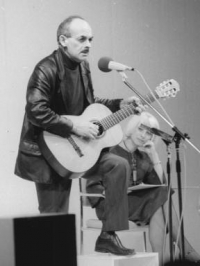
Bulat Shalvovich Okudzhava (Russian: Булат Шалвович Окуджава; Georgian: ბულატ ოკუჯავა; Armenian: Բուլատ Օկուջավա; May 9, 1924 – June 12, 1997) was a Soviet and Russian poet, writer, musician, novelist, and singer-songwriter of Georgian-Armenian ancestry. He was one of the founders of the Soviet genre called "author song" (авторская песня, avtorskaya pesnya), or "guitar song", and the author of about 200 songs, set to his own poetry. His songs are a mixture of Russian poetic and folksong traditions and the French chansonnier style represented by such contemporaries of Okudzhava as Georges Brassens. Though his songs were never overtly political (in contrast to those of some of his fellow Soviet bards), the freshness and independence of Okudzhava's artistic voice presented a subtle challenge to Soviet cultural authorities, who were thus hesitant for many years to give him official recognition.
Orange Blue
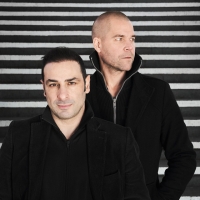
Orange Blue Musical group Active from: 1992 Record labels: Edel SE & Co. KGaA, EDEL, Orange Blue Bros. Records
Nominations: Echo Award for Best National Newcomer Songs She's got that light In Love With a Dream · 2000 Why Do I Feel So Sad on Christmas? Rock Christmas: The Very Best Of · 2000 Can Somebody Tell Me Who I Am In Love With a Dream · 2000
Nominations: Echo Award for Best National Newcomer Songs She's got that light In Love With a Dream · 2000 Why Do I Feel So Sad on Christmas? Rock Christmas: The Very Best Of · 2000 Can Somebody Tell Me Who I Am In Love With a Dream · 2000
Mozart

Wolfgang Amadeus Mozart, full name Johann Chrysostom Wolfgang Amadeus Mozart (27 January 1756 â 5 December 1791) was a prolific and influential composer of the Classical era. His over 600 compositions include works widely acknowledged as pinnacles of symphonic, concertante, chamber, piano, operatic, and choral music. Mozart is among the most enduringly popular of classical composers, and many of his works are part of the standard concert repertoire.
Mozart's music, like Haydn's, stands as an archetypal example of the Classical style. His works spanned the period during which that style transformed from one exemplified by the style galant to one that began to incorporate some of the contrapuntal complexities of the late Baroque, complexities against which the galant style had been a reaction. Mozart's own stylistic development closely paralleled the development of the classical style as a whole. In addition, he was a versatile composer and wrote in almost every major genre, including symphony, opera, the solo concerto, chamber music including string quartet and string quintet, and the piano sonata. While none of these genres were new, the piano concerto was almost single-handedly developed and popularized by Mozart. He also wrote a great deal of religious music, including masses; and he composed many dances, divertimenti, serenades, and other forms of light entertainment.
The central traits of the classical style can be identified in Mozart's music. Clarity, balance, and transparency are hallmarks of his work.
Mozart's music, like Haydn's, stands as an archetypal example of the Classical style. His works spanned the period during which that style transformed from one exemplified by the style galant to one that began to incorporate some of the contrapuntal complexities of the late Baroque, complexities against which the galant style had been a reaction. Mozart's own stylistic development closely paralleled the development of the classical style as a whole. In addition, he was a versatile composer and wrote in almost every major genre, including symphony, opera, the solo concerto, chamber music including string quartet and string quintet, and the piano sonata. While none of these genres were new, the piano concerto was almost single-handedly developed and popularized by Mozart. He also wrote a great deal of religious music, including masses; and he composed many dances, divertimenti, serenades, and other forms of light entertainment.
The central traits of the classical style can be identified in Mozart's music. Clarity, balance, and transparency are hallmarks of his work.
Music theory

Music theory is the study of the practices and possibilities of music. The Oxford Companion to Music describes three interrelated uses of the term "music theory"
Heinz Both
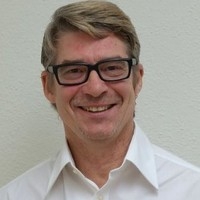
Heinz Both Musician Born: September 10, 1924 Died: August 28, 2010, Hanover, Germany.
Red Garland

William McKinley "Red" Garland, Jr. was an American modern jazz pianist. Known for his work as a bandleader and during the 1950s with Miles Davis, Garland helped popularize the block chord style of piano playing
Charles Gounod

Charles-François Gounod (/ɡuːˈnoʊ/; French: ; 17 June 1818 – 17 or 18 October 1893) was a French composer, best known for his Ave Maria, based on a work by Bach, as well as his opera Faust. Another opera by Gounod that is still performed today is Roméo et Juliette.
Gounod died at Saint-Cloud in 1893, after a final revision of his twelve operas. His funeral took place ten days later at the Church of the Madeleine, with Camille Saint-Saëns playing the organ and Gabriel Fauré conducting. He was buried at the Cimetière d'Auteuil in Paris.
Gounod died at Saint-Cloud in 1893, after a final revision of his twelve operas. His funeral took place ten days later at the Church of the Madeleine, with Camille Saint-Saëns playing the organ and Gabriel Fauré conducting. He was buried at the Cimetière d'Auteuil in Paris.
Bond Quartet

Together Tania Davis (Violin), Eos Counsell (violin), Elspeth Hanson (viola) and Gay-Yee Westerhoff (cello) complete the line-up of BOND.
At its launch, BOND was hailed in the press as ‘the Spice Girls of Classical music’, and went onto turn the world of classical crossover music on its head, spawning many electric string groups inspired by its unique sound.
The members of BOND draw their inspiration from classical, latin, folk, jazz, rock, pop, electro, Indian and middle eastern styles. They have built a very active and loyal international fan base over the years and, since their debut, BOND have sold over 4 million albums worldwide, making BOND the best-selling string quartet of all time.
At its launch, BOND was hailed in the press as ‘the Spice Girls of Classical music’, and went onto turn the world of classical crossover music on its head, spawning many electric string groups inspired by its unique sound.
The members of BOND draw their inspiration from classical, latin, folk, jazz, rock, pop, electro, Indian and middle eastern styles. They have built a very active and loyal international fan base over the years and, since their debut, BOND have sold over 4 million albums worldwide, making BOND the best-selling string quartet of all time.
Heinrich Wilhelm Ernst

Heinrich Wilhelm Ernst (8 June 1812 – 8 October 1865) was a Moravian-Jewish violinist, violist and composer. He was widely seen as the outstanding violinist of his time and one of Niccolò Paganini's greatest successors.He was a highly esteemed artist in his day. Many saw him as the superior violinist of his time and Paganini's greatest successor. Not only did he contribute to polyphonic playing, but he also discovered new idiomatic ways to compose polyphonically conceived violin music. His friends included Hector Berlioz and Felix Mendelssohn.
Koji Kondo

Koji Kondo (近藤浩治 Kondō Kōji?, born August 13, 1960) is a Japanese video game composer and sound director who has been employed at Nintendo since 1984. He is best known for scoring numerous titles in the Mario and The Legend of Zelda series.
D.R.Bellwood
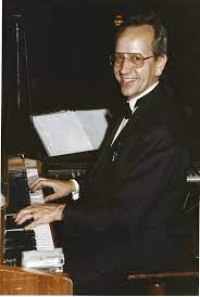
After many years working as a music teacher in schools, I now run my own business, 'Music By Arrangement', creating customised sheet music arrangements for ensembles in schools, music centres and churches, etc. Schools will often have a very unusual combination of instruments and players available, often at very different levels of ability. My compositions and arrangements of folk music and popular classics are based on my vast experience of directing orchestras, bands and ensembles in schools and area music centres, notably in the Leeds area. A full list of titles is shown on my website at musicbyarrangement.co.uk
Grażyna Bacewicz
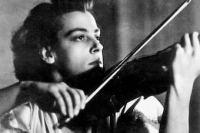
Grażyna Bacewicz ( (About this soundlisten); 5 February 1909 – 17 January 1969) was a Polish composer and violinist. She is the second Polish female composer to have achieved national and international recognition, the first being Maria Szymanowska in the early 19th century.Bacewicz was born in Łódź. Her father and her brother Vytautas, also a composer, identified as Lithuanian and used the last name Bacevičius; her other brother Kiejstut identified as Polish. Her father, Wincenty Bacewicz, gave Grażyna her first piano and violin lessons. In 1928 she began studying at the Warsaw Conservatory, where she studied violin with Józef Jarzębski and piano with Józef Turczyński, and composition with Kazimierz Sikorski, graduating in 1932 as a violinist and composer. She continued her education in Paris, having been granted a stipend by Ignacy Jan Paderewski to attend the École Normale de Musique, and studied there in 1932–33 with Nadia Boulanger (composition) and André Touret (violin). She returned briefly to Poland to teach in Łódź, but returned to Paris in 1934 in order to study with the Hungarian violinist Carl Flesch.
George Michael
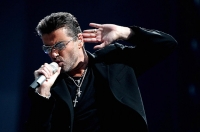
Georgios Kyriacos Panayiotou (born June 25, 1963) best known as George Michael, is a two-time Grammy Award winning, English singer-songwriter, who has had a career as frontman of the duo Wham! as well as a soul-influenced, solo pop musician. He has sold over 100 million records worldwide, encompassing 12 British #1 singles, 7 British #1 albums, 10 US #1 singles, and 2 US #1 albums. His 1987 debut solo album, Faith became one of the best selling albums of all time, and also the first album to produce six top 5 singles in the United States and it has sold over 20 million copies worldwide. All four of his solo studio albums have all reached #1 on the U.K. charts and have gone on to become huge international successes. This success has made George Michael the most played artist on British radio over the past two decades.
Libby Bee
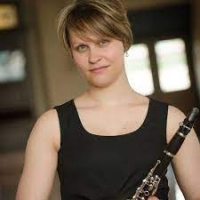
Music arranger for special events, TV etc. Also a bass player. | Learn more about Libby Bee's work experience, education, connections & more by ...
Johann Sebastian Bach

Johann Sebastian Bach (31 March 1685 – 28 July 1750) was a German composer and musician of the Baroque period. He is known for instrumental compositions such as the Art of Fugue, the Brandenburg Concertos, and the Goldberg Variations, and for vocal music such as the St Matthew Passion and the Mass in B minor. Since the 19th-century Bach Revival he has been generally regarded as one of the greatest composers of the Western art musical canon.
Saint Saens

Charles-Camille Saint-Saëns (9 October 1835 – 16 December 1921) was a French composer, organist, conductor, and pianist, known especially for The Carnival of the Animals, Danse Macabre, Samson and Delilah, Havanaise, Introduction and Rondo capriccioso, and his Symphony No. 3 (Organ Symphony).
Herbie Hancock

Herbert Jeffrey "Herbie" Hancock (born April 12, 1940) is an American pianist and composer. He is regarded not only as one of the greatest living jazz musicians, but also as one of the most influential jazz musicians of the 20th century. His music embraces elements of funk and soul while adopting freer stylistic elements from jazz. In his jazz improvisation, he possesses a unique creative blend of jazz, blues, and modern classical music, with harmonic stylings much like the styles of Claude Debussy and Maurice Ravel.
As part of Miles Davis's "second great quintet," Hancock helped redefine the role of a jazz rhythm section, and was one of the primary architects of the "post-bop" sound. Later, he was one of the first jazz musicians to embrace synthesizers and funk. Hancock's music is often melodic and accessible; he has had many songs "cross over" and achieved success among pop audiences.
Herbie's best-known solo works include "Cantaloupe Island," "Watermelon Man" (later performed by dozens of musicians, including bandleader Mongo Santamaria), "Maiden Voyage," "Chameleon," and the singles " I Thought It Was You" and "Rockit." His 2007 tribute album "River: The Joni Letters" won the 2007 Grammy Award for Album of the Year, only the second jazz album ever to win the award after 1965's Getz/Gilberto.
He is an adherent of the Nichiren school of Mahayana Buddhism.
As part of Miles Davis's "second great quintet," Hancock helped redefine the role of a jazz rhythm section, and was one of the primary architects of the "post-bop" sound. Later, he was one of the first jazz musicians to embrace synthesizers and funk. Hancock's music is often melodic and accessible; he has had many songs "cross over" and achieved success among pop audiences.
Herbie's best-known solo works include "Cantaloupe Island," "Watermelon Man" (later performed by dozens of musicians, including bandleader Mongo Santamaria), "Maiden Voyage," "Chameleon," and the singles " I Thought It Was You" and "Rockit." His 2007 tribute album "River: The Joni Letters" won the 2007 Grammy Award for Album of the Year, only the second jazz album ever to win the award after 1965's Getz/Gilberto.
He is an adherent of the Nichiren school of Mahayana Buddhism.
Michael Kamen
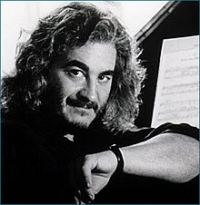
Michael Arnold Kamen was born in New York City, United States, the second of four sons. His father, Saul Kamen, was a dentist, and his mother, Helen, was a teacher. He was of Jewish heritage.
While attending The High School of Music & Art in New York City, Michael Kamen became friends with Martin Fulterman (later known as Mark Snow, who composed the theme music for The X-Files among other projects). While studying the oboe, he formed a rock-classical fusion band called New York Rock & Roll Ensemble, together with classmates Fulterman and Dorian Rudnytsky along with Clifton Nivison and Brian Corrigan of Toms River, New Jersey. The group released five albums from 1968 to 1972 (Self-Titled, Reflections, Faithful Friends, Roll Over & Freedomburger). The group performed in white tie (not tuxedos), as typically worn by classical musicians. In the middle of the concert, Fulterman and Kamen would play an oboe duet. The group backed up friend and classmate Janis Ian in a concert at Alice Tully Hall in late 1967.
After graduating from high school, Kamen attended The Juilliard School, in Manhattan, New York City.
While attending The High School of Music & Art in New York City, Michael Kamen became friends with Martin Fulterman (later known as Mark Snow, who composed the theme music for The X-Files among other projects). While studying the oboe, he formed a rock-classical fusion band called New York Rock & Roll Ensemble, together with classmates Fulterman and Dorian Rudnytsky along with Clifton Nivison and Brian Corrigan of Toms River, New Jersey. The group released five albums from 1968 to 1972 (Self-Titled, Reflections, Faithful Friends, Roll Over & Freedomburger). The group performed in white tie (not tuxedos), as typically worn by classical musicians. In the middle of the concert, Fulterman and Kamen would play an oboe duet. The group backed up friend and classmate Janis Ian in a concert at Alice Tully Hall in late 1967.
After graduating from high school, Kamen attended The Juilliard School, in Manhattan, New York City.
GEORG PHILLIP TELEMANN

Georg Philipp Telemann (24 March 1681 – 25 June 1767) (German pronunciation: ) was a German Baroque composer and multi-instrumentalist. Almost completely self-taught in music, he became a composer against his family's wishes. After studying in Magdeburg, Zellerfeld, and Hildesheim, Telemann entered the University of Leipzig to study law, but eventually settled on a career in music. He held important positions in Leipzig, Sorau, Eisenach, and Frankfurt before settling in Hamburg in 1721, where he became musical director of that city's five main churches. While Telemann's career prospered, his personal life was always troubled: his first wife died less than two years after their marriage, and his second wife had extramarital affairs and accumulated a large gambling debt before leaving him.
Guiseppe Cambini
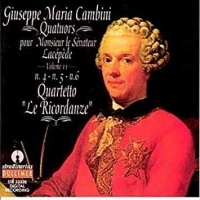
Giuseppe Cambini Giuseppe Maria Gioacchino Cambini was an Italian composer and violinist. Born: February 13, 1746, Livorno, Italy Died: December 29, 1825, Le Kremlin-Bicêtre, France Instruments played: Viola, Violin Record labels: Bongiovanni, Testament, Tudor
Jean-Baptiste Lully
Jean-Baptiste Lully (UK: /ˈlʊli/, US: /luːˈliː/; French: ; born Giovanni Battista Lulli, Italian: ; 28 November 1632 – 22 March 1687) was an Italian-born French composer, instrumentalist, and dancer who is considered a master of the French Baroque music style. Best known for his operas, he spent most of his life working in the court of Louis XIV of France and became a French subject in 1661.
George Mraz
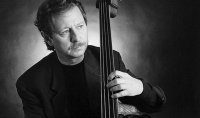
George Mraz was a Czech-born American jazz bassist and alto saxophonist. He was a member of Oscar Peterson's group, and worked with Pepper Adams, Stan Getz, Michel Petrucciani, Stephane Grappelli, Tommy Flanagan, Jimmy Raney, Chet Baker, Joe Henderson, John Abercrombie, John Scofield, and Richie Beirach, among others.
Ennio Morricone
Ennio Morricone, OMRI (born November 10, 1928), is an Italian composer and conductor. He has composed and arranged scores for more than 500 film and television productions. Morricone is considered as one of the most influential film composers since the late 1950s. He is well-known for his long-term collaborations with international acclaimed directors such as Sergio Leone, Brian De Palma, Barry Levinson, and Giuseppe Tornatore.
He wrote the characteristic film scores of Leone's Spaghetti Westerns A Fistful of Dollars (1964), For a Few Dollars More (1965), The Good, the Bad and the Ugly (1966), Once Upon a Time in the West (1968), The Great Silence (1968), and My Name Is Nobody (1973). In the 80s, Morricone composed the scores for John Carpenter's horror movie The Thing (1982), Leone's Once Upon a Time in America (1984), Roland Joffé's The Mission (1986), Brian De Palma's The Untouchables (1987) and Giuseppe Tornatore's Cinema Paradiso (1988).
His more recent compositions include the scores for Oliver Stone's U Turn (1997), Tornatore's The Legend of 1900 (1998) and Malèna (2000), Mission to Mars (2000) by Brian De Palma, Fateless (2005), and Baaria - La porta del vento (2009). Ennio Morricone has won two Grammy Awards, two Golden Globes and five Anthony Asquith Awards for Film Music by BAFTA in 1979–1992. He has been nominated for five Academy Awards for Best Music, Original Score in 1979–2001. Morricone received the Honorary Academy Award in 2007 "for his magnificent and multifaceted contributions to the art of film music". He was the second composer to receive this award after its introduction in 1928.
He wrote the characteristic film scores of Leone's Spaghetti Westerns A Fistful of Dollars (1964), For a Few Dollars More (1965), The Good, the Bad and the Ugly (1966), Once Upon a Time in the West (1968), The Great Silence (1968), and My Name Is Nobody (1973). In the 80s, Morricone composed the scores for John Carpenter's horror movie The Thing (1982), Leone's Once Upon a Time in America (1984), Roland Joffé's The Mission (1986), Brian De Palma's The Untouchables (1987) and Giuseppe Tornatore's Cinema Paradiso (1988).
His more recent compositions include the scores for Oliver Stone's U Turn (1997), Tornatore's The Legend of 1900 (1998) and Malèna (2000), Mission to Mars (2000) by Brian De Palma, Fateless (2005), and Baaria - La porta del vento (2009). Ennio Morricone has won two Grammy Awards, two Golden Globes and five Anthony Asquith Awards for Film Music by BAFTA in 1979–1992. He has been nominated for five Academy Awards for Best Music, Original Score in 1979–2001. Morricone received the Honorary Academy Award in 2007 "for his magnificent and multifaceted contributions to the art of film music". He was the second composer to receive this award after its introduction in 1928.
Giovanni Battista Viotti
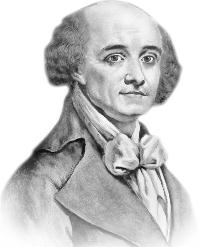
Giovanni Battista Viotti (12 May 1755 – 3 March 1824) was an Italian violinist whose virtuosity was famed and whose work as a composer featured a prominent violin and an appealing lyrical tunefulness. He was also a director of French and Italian opera companies in Paris and London. He personally knew Joseph Haydn and Ludwig van Beethoven.Viotti was born at Fontanetto Po in the Kingdom of Sardinia (today in the province of Vercelli, Piedmont, Italy). For his musical talent, he was taken into the household of principe Alfonso dal Pozzo della Cisterna in Turin, where he received a musical education that prepared him to be a pupil of Gaetano Pugnani.
Jazz Club Piano Solos V2
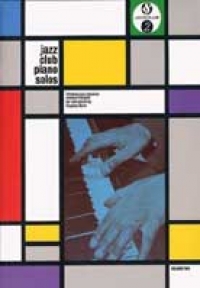
Book containing piano solos of pieces played in jazz clubs.
Chico Buarque
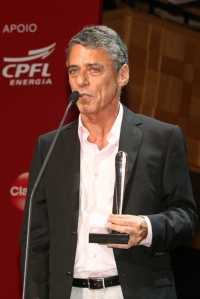
Francisco Buarque de Hollanda, popularly known simply as Chico Buarque, is a Brazilian singer-songwriter, guitarist, composer, playwright, writer, and poet. He is best known for his music, which often includes social, economic, and cultural reflections on Brazil.
Rozen Maiden

Rozen Maiden is a Japanese manga series written and illustrated by Peach-Pit. It was serialized in Monthly Comic Birz between the September 2002 and July 2007 issues. The individual chapters were collected and released into eight tankōbon volumes by Gentosha
Sailor Moon

Sailor Moon is the title of a Japanese media franchise created by Naoko Takeuchi. It is generally credited with popularizing the concept of a sentai (team) of magical girls, as well as the general re-emergence of the magical girl genre itself.
The story of the various metaseries revolves around the reincarnated defenders of a kingdom that once spanned the solar system, and the evil forces that they battle. The major characters—called Sailor Senshi (literally "Sailor Soldiers"; frequently called "Sailor Scouts" in the North American version)—are teenage girls who can transform into heroines named for the moon and planets (Sailor Moon, Sailor Mercury, Sailor Mars, etc). The use of "Sailor" comes from a style of girls' school uniform popular in Japan, the sērā fuku (sailor outfit), after which the Senshi's uniforms are modeled. The elements of fantasy in the series are heavily symbolic and often based on mythology.
Music for the Sailor Moon metaseries was written and composed by numerous people, including frequent lyrical contributions by creator Naoko Takeuchi. All of the background musical scores, including the spinoffs, games, and movies, were composed and arranged by Takanori Arisawa, who earned the "Golden Disk Grand Prize" from Columbia Records for his work on the first series soundtrack in 1993. In 1998, 2000, and 2001 he won the JASRAC International Award for most international royalties, owing largely to the popularity of Sailor Moon music in other nations.
The story of the various metaseries revolves around the reincarnated defenders of a kingdom that once spanned the solar system, and the evil forces that they battle. The major characters—called Sailor Senshi (literally "Sailor Soldiers"; frequently called "Sailor Scouts" in the North American version)—are teenage girls who can transform into heroines named for the moon and planets (Sailor Moon, Sailor Mercury, Sailor Mars, etc). The use of "Sailor" comes from a style of girls' school uniform popular in Japan, the sērā fuku (sailor outfit), after which the Senshi's uniforms are modeled. The elements of fantasy in the series are heavily symbolic and often based on mythology.
Music for the Sailor Moon metaseries was written and composed by numerous people, including frequent lyrical contributions by creator Naoko Takeuchi. All of the background musical scores, including the spinoffs, games, and movies, were composed and arranged by Takanori Arisawa, who earned the "Golden Disk Grand Prize" from Columbia Records for his work on the first series soundtrack in 1993. In 1998, 2000, and 2001 he won the JASRAC International Award for most international royalties, owing largely to the popularity of Sailor Moon music in other nations.
Joseph Bodin de Boismortier
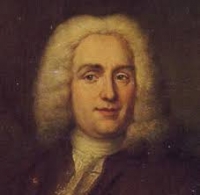
Joseph Bodin de Boismortier (23 December 1689 – 28 October 1755) was a French baroque composer of instrumental music, cantatas, opéra-ballets, and vocal music. Boismortier was one of the first composers to have no patrons: having obtained a royal licence for engraving music in 1724, he made enormous sums of money by publishing his music for sale to the public.
Padre José Maurício Nunces Garcia
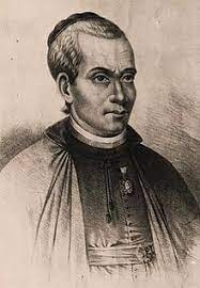
José Maurício Nunes Garcia (September 20, 1767 – April 18, 1830) was a Brazilian classical composer, one of the greatest exponents of Classicism in the Americas.Born in Rio de Janeiro, son of two bi-racial parents, Nunes Garcia lost his father at an early age. His mother perceived that her son had an inclination for becoming a musician and, for this reason, improved her work to allow him to continue his musical studies.
 Sheet Music Network is a site for those who wants to access popular sheet music easily,
letting them download the sheet music for free for trial purposes.
It's completely free to download and try the listed sheet music, but you have to delete the files after 24 hours of trial.
Don't forget, if you like the piece of music you have just learned playing,
treat the artist with respect, and go buy the original sheet music.
Sheet Music Network is a site for those who wants to access popular sheet music easily,
letting them download the sheet music for free for trial purposes.
It's completely free to download and try the listed sheet music, but you have to delete the files after 24 hours of trial.
Don't forget, if you like the piece of music you have just learned playing,
treat the artist with respect, and go buy the original sheet music.
